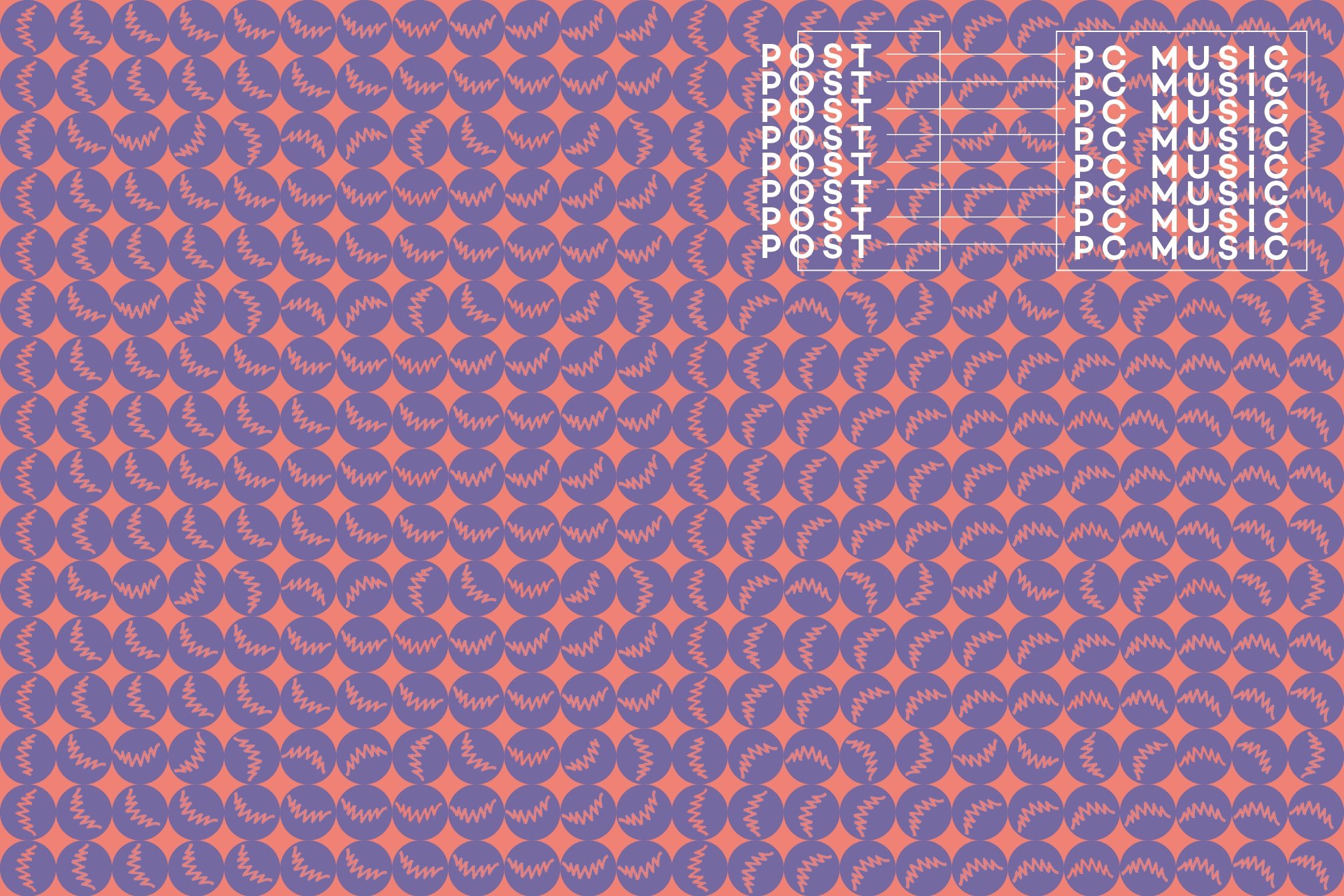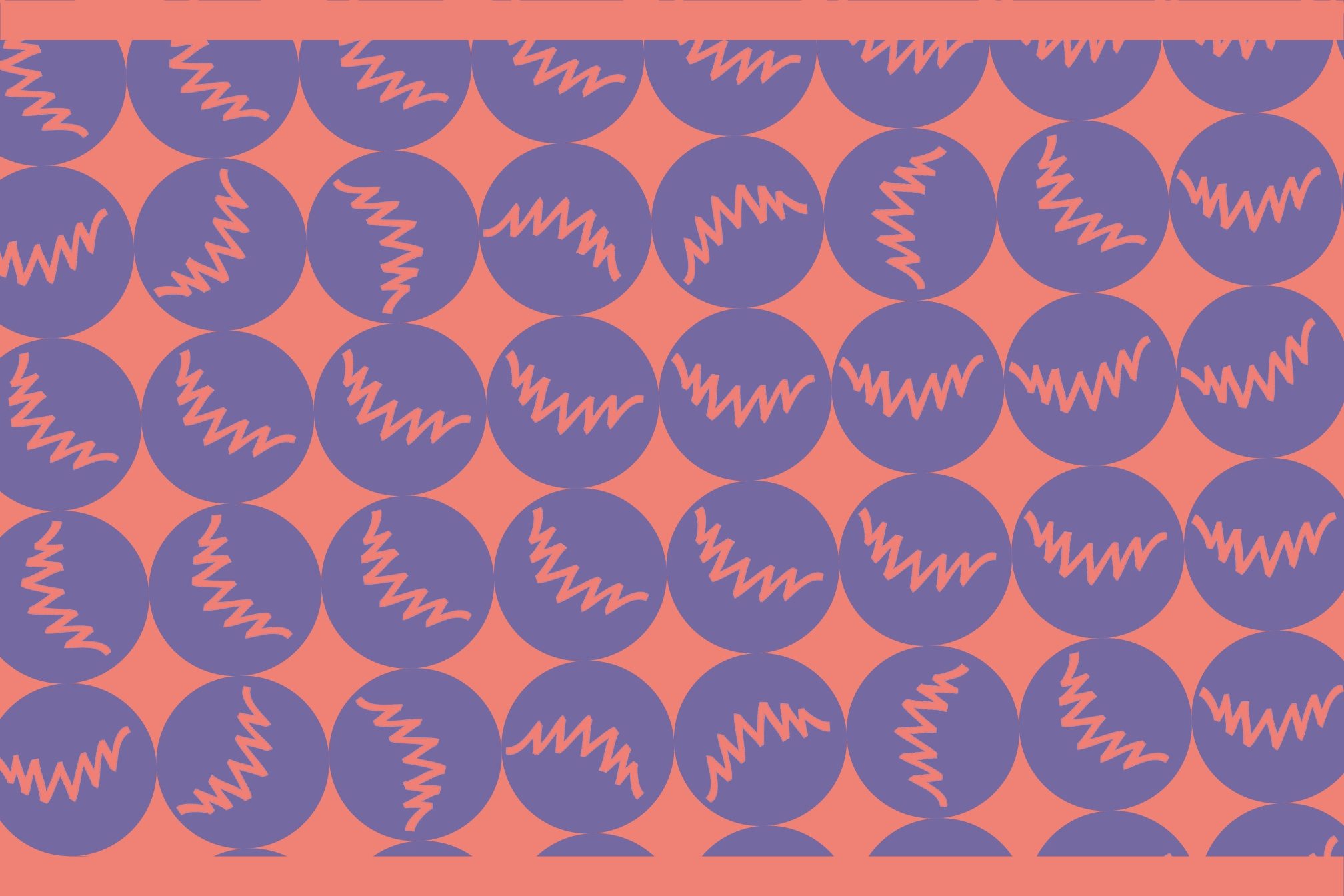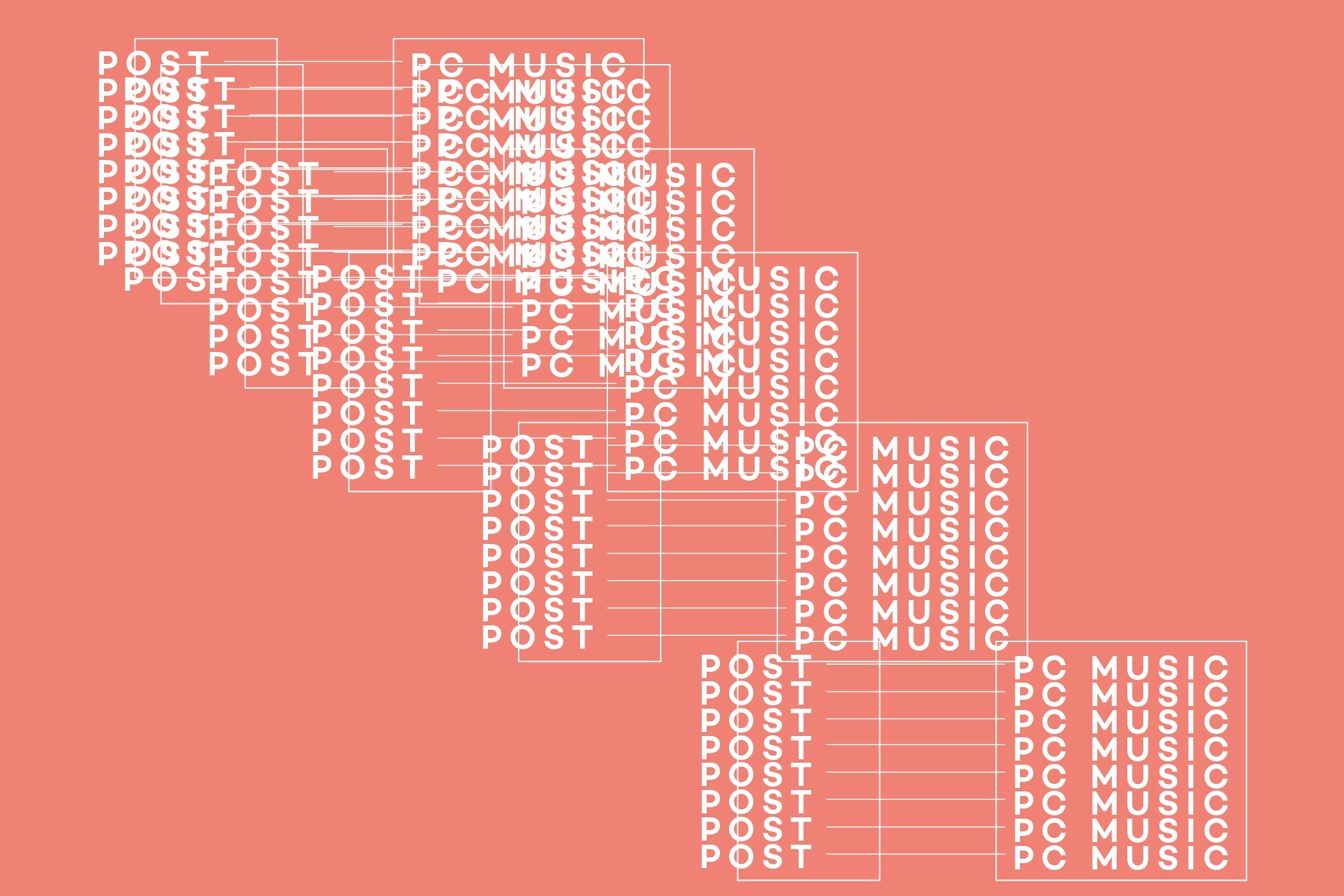 Scene reports
Scene reports
Post-PC Music: How the London label inspired a new stage in the pop continuum
A global scene of inter(net)connected artists raised on PC Music are forging a new musical movement
I first came across PC Music in 2013 at a now defunct East London venue called Power Lunches. Label and collective founder A. G. Cook performed his tactile and unsettlingly elated dance music to a near-empty room during a club night called JACK댄스. The line-up included other emergent producers who married elements of UK garage, grime and commercial hip hop with K-pop, early-millennial r’n’b and, sometimes, Disney soundtracks.
The tiny DIY basement slowly filled with a young crowd, whose dress style could be described as some kind of twee rave revival, via nightcore speed edits and chiptune subgenres, with a queer and femme focus. These fans were presumably part of the burgeoning SoundCloud culture of the time, where PC Music would drop countless free tracks credited to the likes of Kane West, Dux Content, Princess Bambi, Lipgloss Twins and QT. SOPHIE had released ‘BIPP’ on Glasgow’s Numbers label around the same time and would share this same bill, along with many others to come. The music was wild, unhinged and sickeningly effervescent.
It’s now six years later and the impact of PC Music affiliates has reached far beyond empty basements. SOPHIE is a Grammy-nominated artist who played this year’s Coachella. felicita has taken his extreme camp dissonance into collaborations with indie pop artist Caroline Polachek and traditional Polish folk group Śląsk Song and Dance Ensemble. Hannah Diamond is actualising as a self-styled pop star simulation with a forthcoming album. The pop cultural landscape has changed and PC Music producers, like Danny L Harle, Lil Data, GFOTY—alongside allies Charli XCX and Carly Rae Jepsen—have arguably had a lot to do with it. At the same time, there’s a new generation of producers building on these innovations in parasiting pop. Based across the globe, they’re roughly the same age as their PC Music predecessors were a half-decade ago and their output is as diverse and diffuse as their locations are dispersed, while still interlinked by connecting and collaborating online.
“A. G. Cook sent me an email out of nowhere after finding me [while] randomly browsing Soundcloud,” writes 19-year old umru, revealing how he wound up co-producing a song for Charli XCX’s ‘Pop 2’ mixtape. “The internet is definitely how I know most people through music and honestly some of my best friends.” The New York-based producer’s debut EP ‘search result’ came out on PC Music late last year, featuring the kind of high definition electronic pop the label is known for, while taking it to new heights of bodily intensity. Guest vocals come from the likes of Melbourne’s Banoffee, Ravenna Golden and Lewis Grant in Los Angeles and Saint Louis-born, Chicago-based osno1 (now known as Laura Les). The latter artist’s contribution to umru’s ‘popular’ is a stand out, with her synthetic falsetto contrasting with the track’s plunging bass distortion and beats.
That collaboration leads to Laura Les’ own impressive catalogue of pitched vocals and sardonic lyrics in music informed by sad rap and turn-of-the-millennium pop punk, EDM and early nightcore. “Their music, has just always felt like the perfect representation of freedom in the age of the internet to me. It’s really beautiful,” she writes, having become a PC Music fan after seeing their “Dead Or Alive Stream – Halloween” video in 2014. “PC Music’s mixes and releases would definitely be one of my biggest influences, especially the early mixes,” Laura Les adds, while also citing trance, happy hardcore and grindcore, Taylor Swift hardstyle remixes, Vines and “YouTube Poop” as reference points. You can hear this eclecticism in the music. ‘feels good’ from Laura Les’ ‘BIG SUMMER JAMS 2018’ indulges in an ecstatic dubstep drop. Her collaboration with high school friend and LA-based pop producer Dylan Brady as 100 gecs has resulted in the comparatively emo-folk amble of tracks like ‘ditch a body in the laundry’. “Dylan and I are pretty big fans of some classic pop punk,” she explains about the collaboration that’s often led by a muffled guitar line and shared vocals. “We channelled some big Blink [182] influence on that one. I think I was listening to a lot of early Get Up Kids too. We just like fun melodies and that kind of music is just packed with those.”

For anyone familiar with kids cartoon Steven Universe, the leisurely scat of Laura Les’ ‘how to dress as human’ from her 2017 release ‘i just dont wanna name it anything with "beach" in the title’ reads as a reference to the titular half-human, half-Gem boy protagonist. With its foregrounding of LGBTQ themes, the animated series has become somewhat of a cultural touchstone for a younger generation of queer-identifying artists. 26-year-old Ohio-based producer Galen Tipton notes the show as one of a long list of influences, alongside the textural elements and experimentation of SOPHIE. “Her whole public coming out, and all of the songs related to her trans-ness and identity gave me so much life, as a non-binary, trans girl producer,” they explain. “I can’t tell you how many times I’ve watched the 'It’s Okay To Cry’ music video and teared up lmao.”
You can hear elements of SOPHIE’s dissonant spectacles of near-tangible sonic objects in Tipton’s ‘Queer Flesh’ cassette tape, released on Post-Geography last year. The 12 tracks are shattered into countless cracked and crackling fragments of contrasting sounds, ideas and stylistic references. ‘Crystal Blood’ starts in hi-tech noise before moving through trap and bass, a marimba melody, and atmospheric drone in the span of three minutes. The track listing plays out like a selection of attention deficit sound sketches rather than individual songs, similar to the impulsive and intuitive footwork and house fusions of international producers like 食品まつり a.k.a foodman, DJWWWW and toiret status. “I don’t consider my music footwork, by any stretch, but I feel a strong creative kinship with the Japanese experimental scene that dabbles in footwork,” Galen explains. ”To me, the music these artists make sounds like pure freedom and play, and that’s the space I like to create from—one of unrestricted expression and emotion.”
Tipton made their own reworking of umru and osno1’s 'popular', which goes some way in reinforcing the highly networked nature and remix culture of the community surrounding this URL scene. Minecraft-specific music event Fire Festival goes further. A clear play on the infamous millennial fail that was the “luxury” Fyre Festival, the virtual festival took place on two stages within the video game and featured an epic line-up, including Anamanaguchi, Water Spirit and Kai Whiston, among others. “Basically, that began with a friend’s joke idea for a birthday party in Minecraft and somehow evolved into a full-blown online music festival that I helped curate and manage,” umru says, about the occasion organised by 21-year-old producer Sleepycatt, which also drew cameos from Charli XCX and A. G. Cook. “I think it was a very insane testament to how strong the various online music scenes that came together for the festival have become.”
A standout in the 13-hour-long SoundCloud recap of Fire Festival is a mix by Roxas and Klahrk collaborative project quavis, where a jump-up d'n'b reworking of Oasis’ ‘Wonderwall’ by Sherekhan meets the industrial hip hop of Death Grips. Originally distributing and developing his music via Soundcloud from “a sleepy town in the south of England”, Klahrk first met Argentinian producer Roxas via the music-sharing platform. “We instantly had a connection through our outrageously similar music tastes and have been making music together since 2016,” he writes on the beginnings of the original quavis duo. They have since renamed themselves Klahrk & Roxas and released their debut album ‘QUAVIS’ via Activia Benz on June 14. The music from the record is less focused on the cute and femme aesthetics, and more on the chaotic dynamics and crunchy sampling of their PC Music precursors. “Their hyper-real take on pop music was such a fresh break from everything else I was listening to at the time I found them in 2014 and has continued to develop since,” Klahrk explains, in the meantime acknowledging that it's the label’s business and distribution method that informs how his own WARE collective works. “The thing that I admire most about PC Music and that has influenced me is how they are run as an internet-based label.”
In one quavis track, called ‘hypertension’, the frenetic oscillations at the fore briefly yield to a murky vox pop of an interview with umru on YouTuber Lauren Engel’s Sidewalk Talk channel. It’s a detail only a loyal fan would recognise but given the countless reddit threads and live show bootlegs devoted to reporting on all things PC Music, it’s one that would surely not go unmissed. Columbus, Georgia-based 18-year-old Dvnots (aka Lilah Duncan) is one such fan, whose comments and corrections you can find across online platforms. “I can definitely admit that when I first started out as Dvnots four years ago, quite a bit of my stuff at the time (which has mostly, thankfully, disappeared from the internet) was a bit derivative,” Duncan writes about her developing catalogue. “The first things on my Soundcloud were remasters of live SOPHIE rips but I took those all down a really long time ago.” Her work is now more personal, while still counting SOPHIE and felicita as major influences. Their mark is audible in the topsy-turvy clicks, pops and bounces of Dvnots track ‘It's Pouring / Lux (To Be A Child Again)’, and is felt in the sub bass kick and dance-oriented modulations of ‘Siberia’ from her Betrail Mix.

Other producers cite lesser-known and slightly more conceptually-driven artists on and around the PC Music roster. Both Klahrk and hmurd, another twenty-something London-based producer, list Lil Data as an influence. His recent algorithmic pop album ‘Folder Dot Zip’ exists at the nexus of programmed linearity and something more crude and human. hmurd errs closer to this computer music side of the scene, where it often intersects with the live-coding experiments of Algorave. Working with TidalCycle open source software, hmurd produces speedy, chaotic cut-ups on record while at the same time heavily sampling Charli XCX in live sets. His ‘boycott ethical consumption’ debut EP —released in January via TT (fka Tobago Tracks)—seems to dissect similar elements of EDM, garage and noise as any other PC Music artist, except their abstractions are more extreme.
hmurd views his approach differently. “To be honest, I think I came to it from a bit of a different angle, which was more ‘how can I take this fairly abstract computer music practice and apply it to club music?’” he counters over email. “I think your interpretation makes sense to a listener, and I'm glad that you're reading my music in that way but I think I realised the EP, to an extent, from the opposite direction. It's pretty tangled though. In reality, perhaps the EP is a co-production of those two things: my answers to the questions of ‘how do I break dance music?’ and ‘how do I fix computer music?’. I think where I arrived is probably somewhere in between.” While hmurd can only draw a direct link with Lil Data as a creative influence, he also recognises that elements of the rest of the PC Music oeuvre must surely have rubbed off on him since becoming aware of the label at its inception in 2013. “Their influence on pop music in general has been quite broad, so I guess in some sense, through exposure, their sound has filtered into mine in some way, but it's never been a very conscious thing.”
Australian Makeda is another unusual example of just how far-flung the London-founded imprint’s influence has spread. Across continents and in another hemisphere, the Melbourne-based producer released ‘Lifetrap’ on Nice Music in April – an EP of what you could call “deconstructed drum ‘n’ bass”, complete with pitched, looped and manipulated vocal samples. And while the references might not be as immediately recognisable in the cut-up rhythms and warped techno textures, they’re still there nonetheless. “I'm not sure if their influence manifests in an obvious way to others listening to my work. My process is usually a gut response to various situations I experience and watch occur around me,” Makeda writes, citing the work of felicita, as well as a QT and SOPHIE live show in Melbourne, as influences on the freakish pitches and downbeat fluctuations that haunt her production. “My music usually sounds either devastated or ecstatic, or sometimes a combination. I feel like PC [Music] operate on a similar plane, in that it is very [influenced by the] ‘gut’. Thematically, it is hyper emotional, and the music is a synthesised version of that feeling.”
From the respiring sound design of Makeda to the epic dance pop of umru, the diversity of artists that are in one way or another inspired by the trail blazed by PC Music is testament to the spirit of versatility, experimentation and open-mindedness it perpetuates. PC Music adjacent sound design has becomes its own not easily definable genre, with a slew of somehow related subgenres. And now, it is young artists, like umru, carrying on the mantle of amalgamations of music that’s made for the moment: “As much as my music falls under and is influenced by ‘wonky’ or ‘bubblegum bass’, or the mysterious Spotify-algorithm-generated genre ‘Escape Room’, my goal is for it to eventually become part of, or in some way influence and develop what pop music is.”
Steph Kretowicz is editor at aqnb.com and a freelance writer, follow her on Twitter
Read this next!
PC Music drop first label compilation, 'PC Music Volume 1'
Algorave: The live coding movement that makes next-level
Video games are influencing a generation of electronic music innovators



